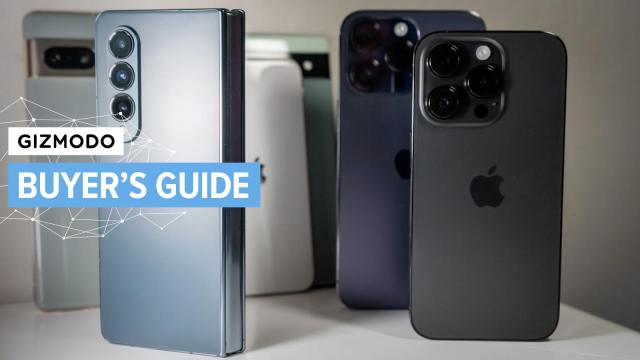The smartphone audience is so wide that it’s difficult to settle on just one best phone of 2023. Some of us want huge screens, fast processors, and tons of memory. Other people want the very best camera so they can share photos on social media. And then there are the folks who want the best budget phone and/or best small phone (they’re often the same thing), just something simple and cheap that will easily fit in a pocket.
Your personal decision about what smartphone to buy starts, like many things, with picking a side: Android or iOS? The Google-backed Android operating system is the world’s most popular, with more than 70% market share around the globe, in large part because it’s cheap and used by lots of small companies in developing markets. But Android’s market share is trailing behind Apple in the U.S. and Canada, and iPhones recently scored more than 50% of the total US market for the first time ever.
Jump to:
- The Best Apple Phone
- The Best Android Phone
- The Best Value Phone
- The Best Big Phone
- The Best Small Phone
- The Best Foldable Phone
What phone should I buy?
New hardware lines have complicated the buying decision. In the Android world, Samsung gave up on its Galaxy Note line but doubled down on foldables with the Galaxy Z Flip 5 and Z Fold 5. Non-folding options like the Galaxy S23 Ultra are exciting, too. Google’s Pixel 8, Pixel 8 Pro, and even its mid-range Pixel 7a feature some of the best smartphone cameras we’ve ever tested. They also pack Google’s third-generation Tensor chip, unlocking sophisticated AI-powered features. Last year’s chip is also in the Pixel 7a, offering budget users a great option that won’t leave them behind.
Meanwhile, on the iOS side, the first-tier iPhone 15 is worth the upgrade. Apple also switched the lineup to USB-C, along with the iPhone 15 Pro. Don’t expect to buy an updated iPhone SE, as that was not on this year’s list of refreshed models.
The editorial staff of Gizmodo independently tests and reviews each product found in our Buyer’s Guides. If you purchase something using our affiliate links, G/O Media may earn a commission. Affiliate linking does not influence our editorial content.
The Best Android Phone
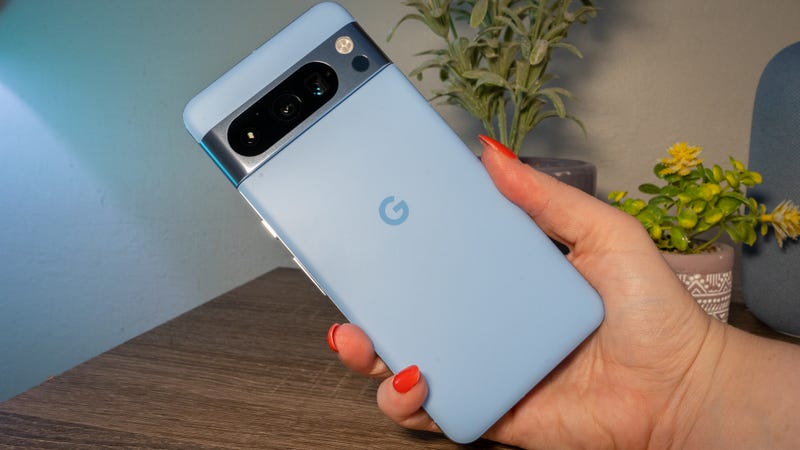
Our Pick: Google Pixel 8 Pro ($US1,000)
The Google Pixel 8 Pro is the one to get, even if Google did bump up the price from last year’s release. It ships with the latest version of Android and the third-generation Google Tensor G3, which is the key to some of the Pro’s unique AI smarts.
The Best Apple Phone
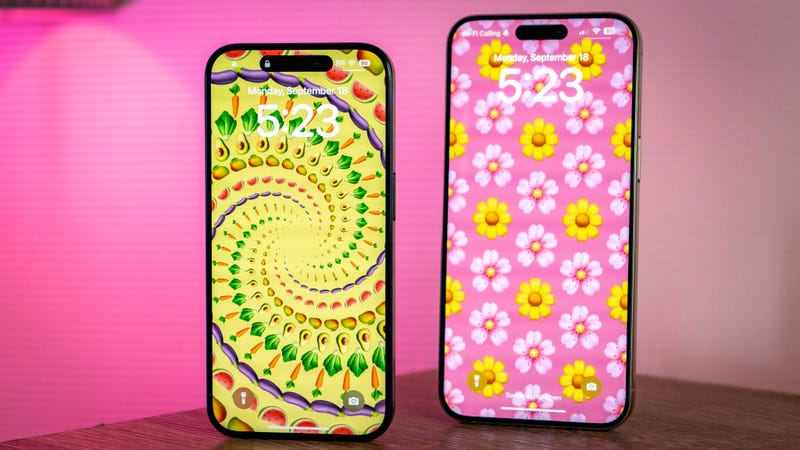
Our Pick: iPhone 15 Pro ($US1,000)
The iPhone 15 Pro pairs nicely with the new features on display in iOS 17. It features Apple’s new Bionic A17, which outperformed every smartphone Gizmodo reviewed this year in synthetic benchmark tests. The Pro is also part of the iPhone 15 family, which is the first iPhone line to offer roadside assistance via satellite. And don’t forget that this is the first flagship iPhone with USB-C connectivity.
The Best Value Phone
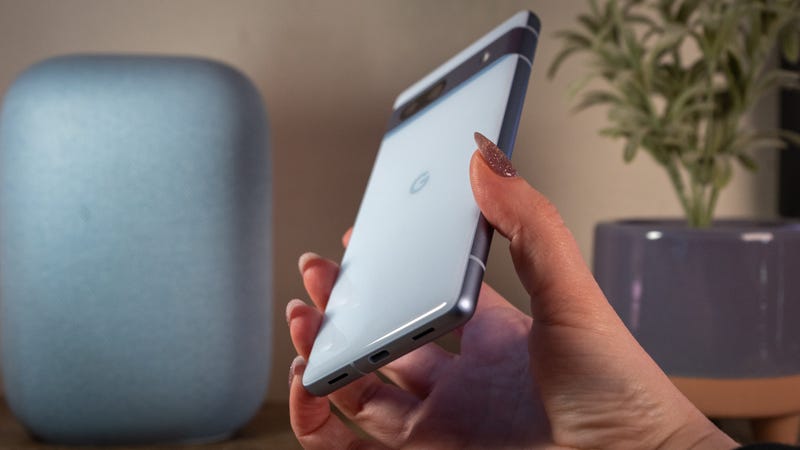
Our pick: Google Pixel 7a ($US500)
There isn’t a better deal for Android users right now than the Google Pixel 7a. Not only does it boast the new look of the other Tensor-powered Pixels, but it uses the same chip as the excellent Pixel 7, too. That makes the Pixel 7a a steal: it has all the best parts of a Google flagship without the price tag. It’s stylish, offers unique features facilitated by the Tensor chip, and will receive timely software updates directly from Android headquarters—that’s not something third-party Android devices can flaunt.
The Pixel 7a also has a surprisingly strong camera for its price point. It’s almost on par with last year’s Pixel 7 flagship series. You’ll notice the most difference between price points as you’re taking night shots, as the Pixel 7a doesn’t have the glass to capture quite as much light as its pricier counterparts. If you’re looking for a smaller Android phone, the Pixel 7a has a 6.1-inch screen in a category typically dominated by giant devices.
Despite its attractive pricing, there are some drawbacks to the Pixel 7a. For one, the meager 128GB of storage will fill up fast if you shoot lots of videos. The phone’s display is also limited to a 90Hz refresh rate, which is plenty smooth and is great for battery life, though isn’t quite top-of-the-stack. If the phone’s refresh rate is a concern, the Samsung Galaxy A54 is also in this price range and features a punched-up display with a 120Hz refresh rate.
Buy at Best Buy – G/O Media may get a commission
Buy at Amazon – G/O Media may get a commission
The Best Big Phone
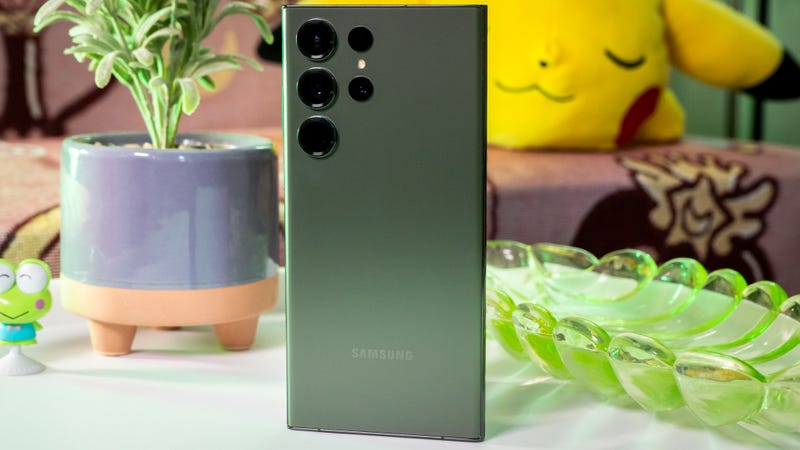
Our Pick: Samsung Galaxy S23 Ultra ($US1,200)
The Galaxy S23 Ultra is better than its predecessor. It has a 200-MP primary camera with the same 100x digital zoom as the Galaxy S22 Ultra for shooting planes, trains (from far away), and birds. There are two 10-MP lenses on the back, too, that can manage up to 10x optical zoom and 3x optical zoom, respectively. Samsung has also improved its astrophotography capabilities; this is the phone you’ll want to get if shooting the constellations is a priority.
The Galaxy S23 Ultra is also more comfortable to hold. Samsung made the sides more rectangular than curved, and it’s better for gripping long term—especially if you’re going to use that stowaway S Pen, which you can use to write, draw, crop images off the screen, or as a remote for taking selfies. The Galaxy S23 Ultra also has the best battery life of any Android device we’ve tested thus far. While this isn’t a phone for everyone, this is an everything-you-need-whenever smartphone, which makes its $US1,200 start price point a little more palatable at the end of the day.
Buy at Samsung – G/O Media may get a commission
Buy at Best Buy – G/O Media may get a commission
Buy at Amazon – G/O Media may get a commission
Also Consider: iPhone 15 Pro Max ($US1,200)
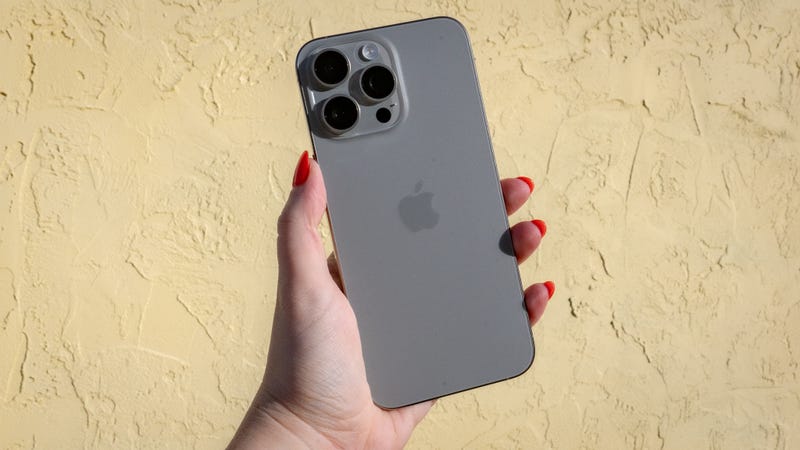
For devoted iOS users, the big-ass iPhone 15 Pro Max is the way to go if you can afford it. The 6.7-inch iPhone 15 Pro Max is the same phone on the inside as the smaller-sized iPhone 15 Pro. It features the same A17 Bionic chip and triple array camera system, though it offers a higher optical zoom than the regular iPhone 15 Pro—it’s 5x on the Pro Max compared to 3x on the Pro. The iPhone 15 Pro Max also lasted the longest in our battery rundown tests.
The Best Small Phone
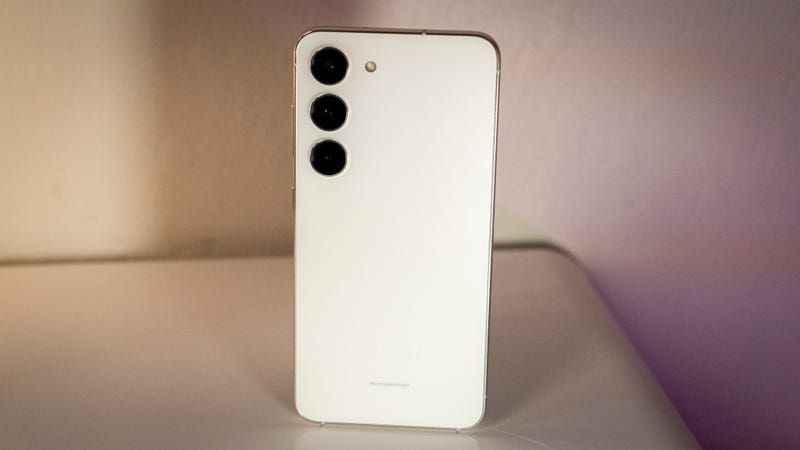
Our pick: Samsung Galaxy S23 ($US800)
For Android users, give the smaller Samsung Galaxy S23 a try. This 6.1-inch device is what the doctor ordered if you’re over the giant screens taking up precious pocket space. The Galaxy S23 has improved nighttime photography over its predecessors—enough to compete toe-to-toe with Google’s algorithms. And although the display is smaller than the norm, it is Samsung’s signature Super AMOLED with a whopping 120Hz refresh rate, so using it will feel smoother than what you’d experience with the 90Hz Google Pixel 7. The only caveat is that the small Galaxy S23 doesn’t support UWB, which you might want to get the most out of what you pay your carrier each month.
Also consider: Apple iPhone 15 ($US800)
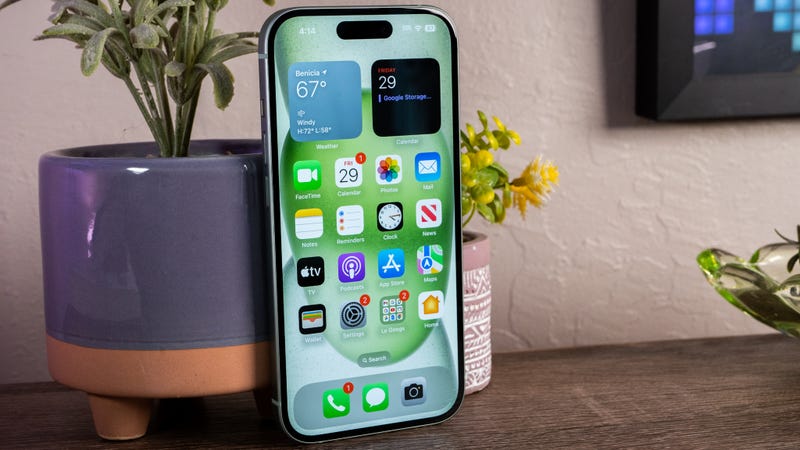
If you are still looking for a small, pocketable phone and are committed to the Apple way of life, the 6.1-inch iPhone 15 is also worth consideration. Apple bundled this device with the iPhone 14 Pro’s A16 Bionic processor with a bit of extra oomph. It also has last year’s Dynamic Island. And like the Pro model, it’s now using USB-C.
The Best Foldable Phone
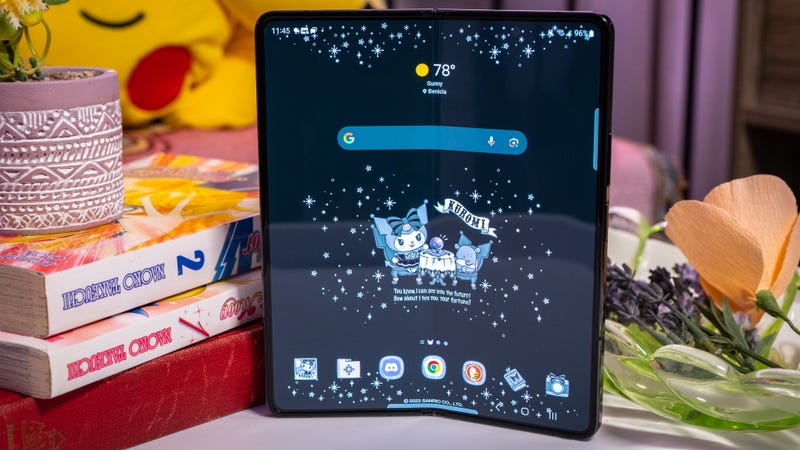
Our Pick: Samsung Galaxy Z Fold 4 ($US1,800)
If you’re going to buy a foldable, commit to the latest. The Galaxy Z Fold 5 is the cream of the crop for folding smartphones. It features the best camera system of any Samsung foldable, longer battery life than the similarly-priced Google Pixel Fold, and software that’s more tuned to folding screens than stock Android. Samsung also dialed back the crease on this fifth-generation folding book-style phone. The Galaxy Z Fold 5 shuts tight with no more gap in the middle.
The specs of the Z Fold 5 remain mostly unchanged from its predecessor. The front cover screen is 6.2 inches and unfolds into a 7.6-inch tablet. All screens use Samsung’s Dynamic AMOLED and have 120Hz refresh rates. There’s a Snapdragon 8 Gen 2 with Samsung flavoring powering up the inside, 12GB of RAM, up to 1TB of storage, and IPX8 water resistance. If you can afford it or have enough trade-ins to bring down the price, the Z Fold 5 is also an ounce lighter than last year’s Z Fold 4.
Buy at Samsung – G/O Media may get a commission
Buy at Best Buy – G/O Media may get a commission
This list is updated regularly with new recommendations and product forecasts.
